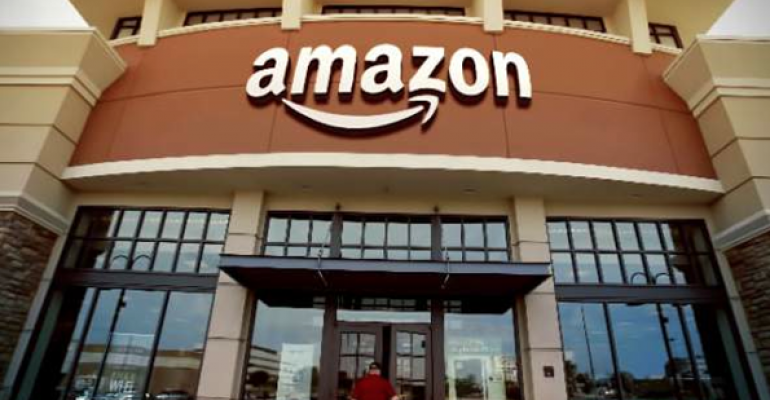Microsoft. Samsung. Apple. Google. Amazon: These are the most prominent tech companies around. Do they also represent the future of brick-and-mortar retail?
As everyone looks at the phenomenal success of Apple’s retail stores to learn how to drive sales volume and build their brands, it’s not surprising that other large technology and consumer products companies are also considering dipping their toes in the same retail waters. Microsoft has opened stand-alone specialty stores as well as kiosks in shopping centers across the United States. Google has dabbled in pop-ups and Samsung has toyed with stand-alone stores in foreign markets.
But no doubt the biggest competitor on the horizon is e-commerce powerhouse Amazon. With nearly $75 billion in global revenues and still growing at a fast rate, Amazon is the most likely threat to one day surpass Walmart as the world’s largest retailer. And the company has gotten to where it is today with no physical stores. Until now.
Amazon’s announcement of opening up a store on 34th Street in New York City will be one of the most carefully watched stories in retail. The store is supposed to open in time for this year’s holiday season. To date, there are many more questions than answers. No word yet on the size of the store, or more importantly, its purpose. What will happen in an Amazon store?
With over 200 million SKU’s for sale in the U.S. today (by way of comparison, a giant Wal-mart Supercenter carries around 150,000 SKU’s), it would be impossible to carry anywhere near a representative portion of Amazon’s product categories in a physical store, no matter the size. However, Amazon, like Microsoft, Samsung and Apple, has been making a push into its own proprietary products. Technology products like Kindle readers and fledgling efforts like Fire Phone and Fire TV would certainly benefit from retail exposure to compete against more established brands in the market. Amazon is also just beginning to sell private label products and has a book publishing unit as well.
Even more potentially intriguing is the role that physical stores could have with click and collect purchases (order online and pick up in store) or as physical staging depots for same-day delivery. This is an area where brick-and mortar retailers have established a decided advantage even as Amazon works hard to fulfill the promise of immediacy.
Given the prime location in the middle of Manhattan, we would suspect store number one will be more about branding and showcasing Amazon proprietary products than about becoming a serious retail sales outlet. But Amazon has shown itself to be an aggressive competitor in any business area where it’s ventured. Could Amazon remake and reshape the physical retail landscape in the same manner that it has transformed e-commerce? Stay tuned.

